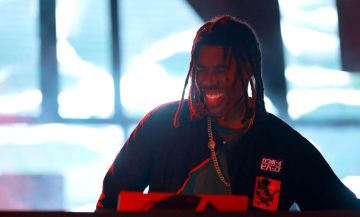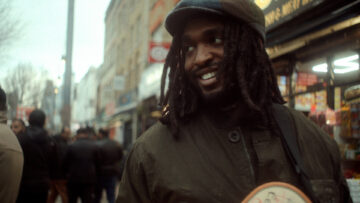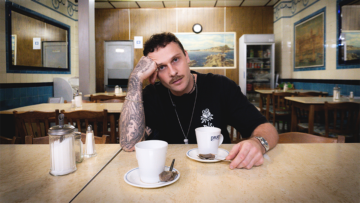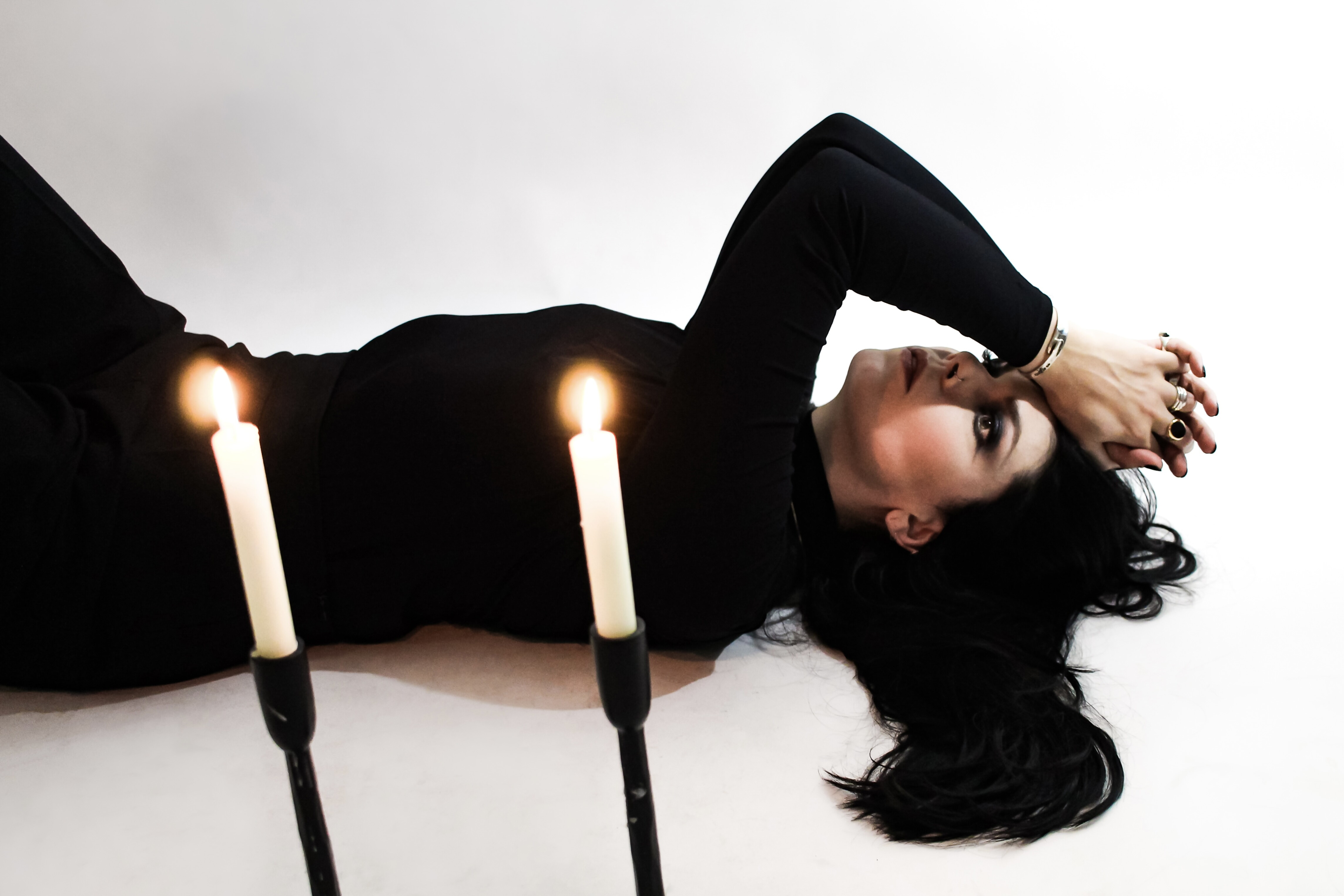
“So take this hollow heart of mine, and fill it up with all the words that I have heard a thousand times. It does not bring me comfort anymore.” That’s the chorus of ‘Hollow Heart’: the first song on A.A. Williams’ second album, As the Moon Rests. And the British singer-songwriter starts as she means to go on.
The new, eleven-track collection is crammed with nihilistic poetry. Lead single ‘Evaporate’ cries, “I can’t stop the violence in my mind! Every day, I try just to survive!”, before ‘The Echo’ hums over swelling strings and gentle drums, “If only you knew, I can’t prioritise you. I’m alone and there’s nothing you can do.” So, when whynow sits down with A.A. at Guildford’s Radar Festival, the first question has to be, are you doing alright?
“That’s a great question,” she laughs in response. “Someone came up to me after a show and asked me that once. I’m very grateful for the concern, but writing songs is a good kind of therapy. When I’m writing a song, I’m not really worrying about whether people are going to hear it, or if it will make the album or not; it’s a helpful process that lets me work through various bits and pieces of my life. There’s introspection in a negative sense, but I’m managing it in a positive way.”
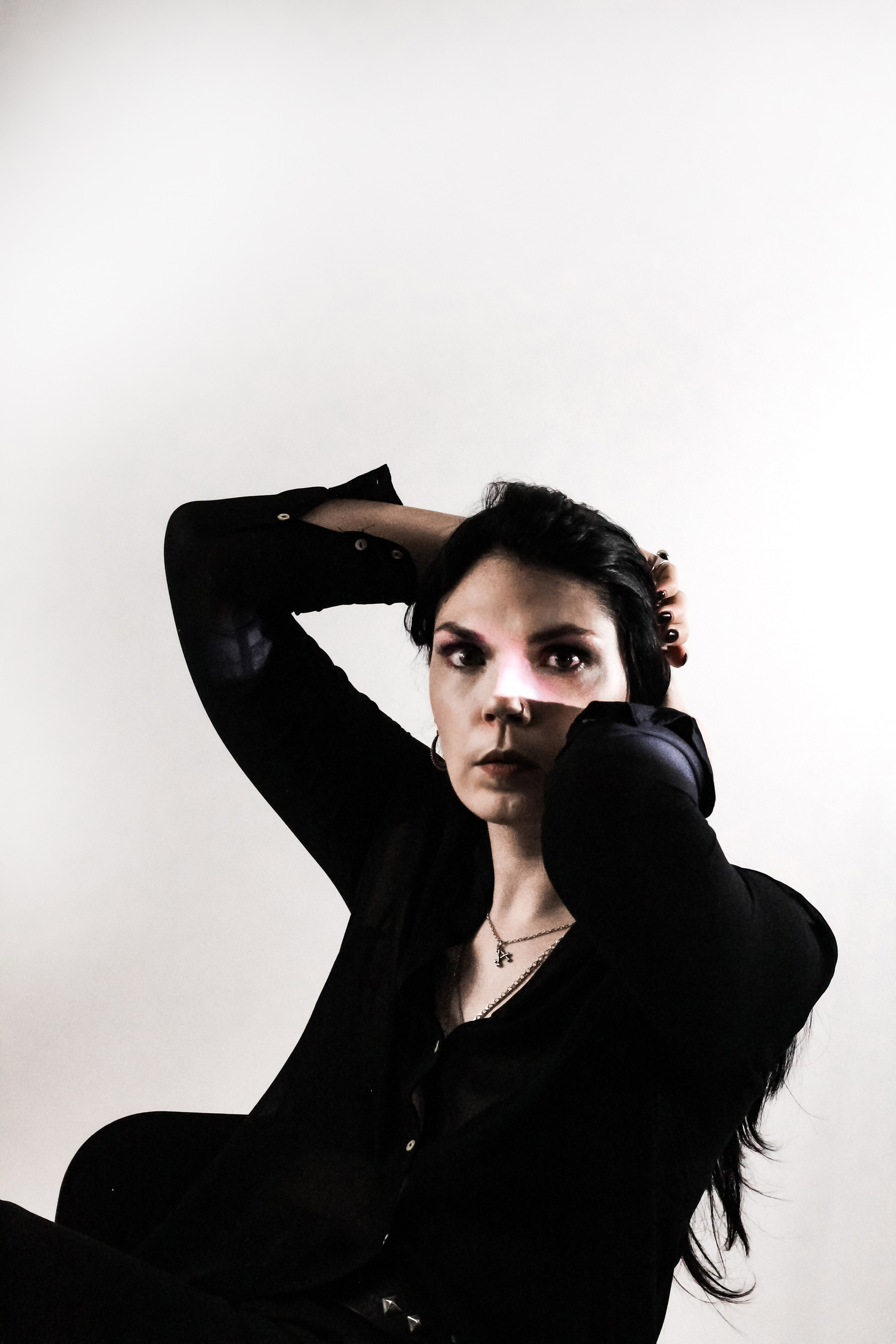
Photo: Thomas Williams
Radar’s proving the ideal environs to discuss such bleak songwriting. It’s largely a progressive rock weekender: this year’s headlined by Leprous, Haken and viral funk-jazz bunch Dirty Loops. However, backstage at the festival’s Casino nightclub, the dim lighting and colourless leather furniture are the perfect complement to A.A.’s attire, which is just as uniformly black as her hair.
We’re speaking before her and her backing band – guitarist and keyboardist Matthew de Burgh Daly, drummer Wayne Proctor and bassist (and A.A.’s husband) Thomas Williams – will cram an hour of melancholy between all that noodling prog. Rather than soloing at 10,000mph, A.A.’s tunes slowly coerce pop, goth and post-rock music together, escalating from one-woman angst to full-band crescendos.
On As the Moon Rests, ‘Pristine’ opens with a dulcet acoustic guitar and moody vocals, but concludes in a climax of percussion, strings, horns and bass. ‘Golden’ goes from a piano-backed soliloquy to electric guitars and multi-tracked wails, before the title track wraps the album by juxtaposing A.A.’s crooning against a chugging, Black Sabbath-esque riff.
They’re songs that inflate like classical crescendos: unsurprising when the singer begins delving into her upbringing. “My dad used to listen to Classic FM a lot,” she remembers, “so all of this is quite predominantly his fault.”
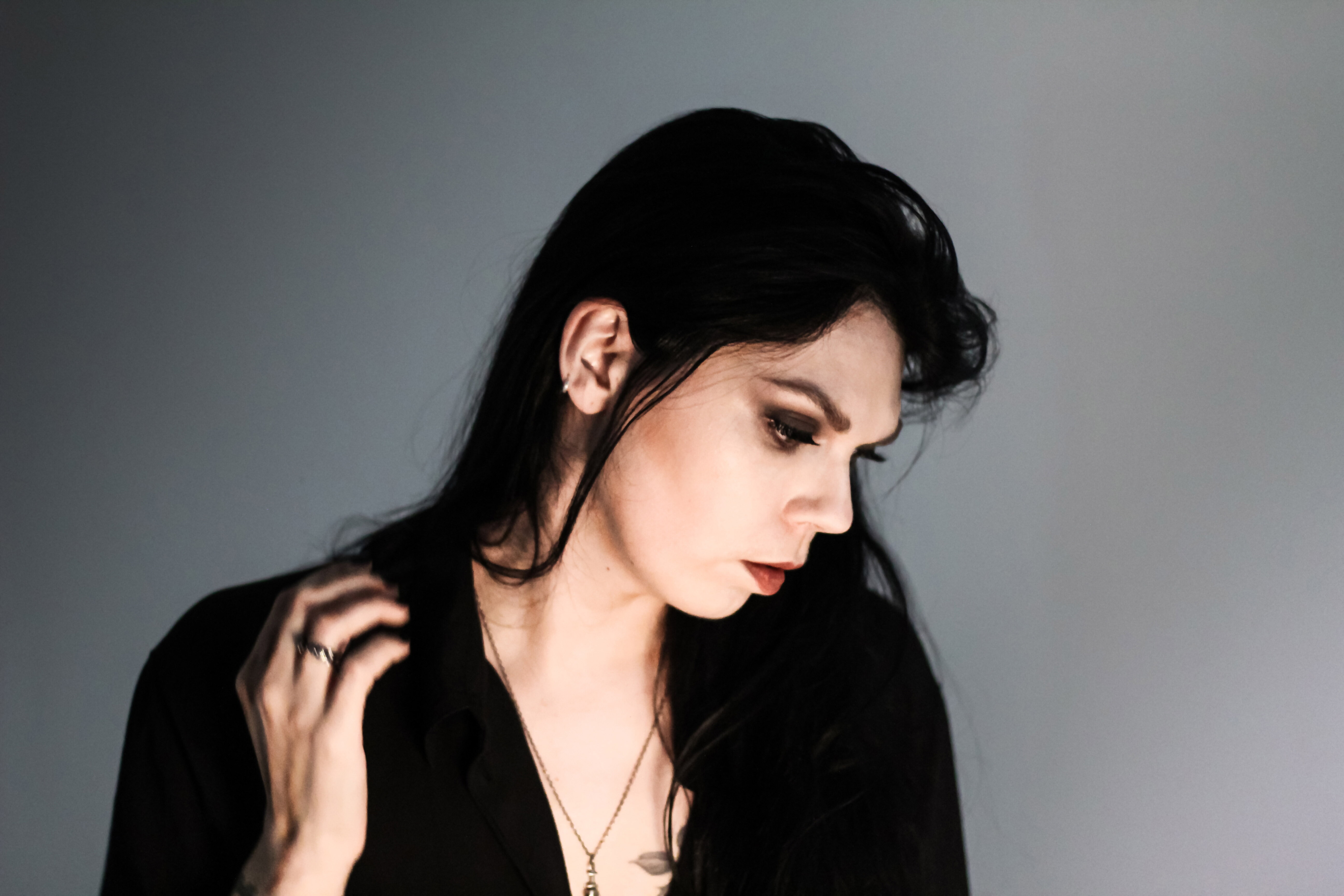
Photo: Thomas Williams
A.A. Williams – or Alex, as friends and family know her – was born and raised in south London. Her dad was a pastry chef that worked from home while his daughter was growing up, feeding her on a diet of symphonic music since as far back as she can remember. Meanwhile, her mum, a systems analyst by trade, would play Queen and Led Zeppelin. Beyond that though, A.A.’s parents weren’t musical people.
“My dad dabbled in the piano, but not particularly well,” she smiles, “and my mum isn’t remotely musical. It’s been a process of me bashing away at things in the corner, making loads of noise and gradually refining that noise into something nicer.”
Despite that, wanting her daughter to have some kind of creative outlet whilst growing up, the singer-songwriter’s mum gave her a push onto the journey of making her own music. A.A. was enrolled into piano lessons and was instantly hooked.
She later picked up the cello as well, before going to Goldsmiths University to study classical music as an undergraduate. After that, she did a master’s in classical music performance, specialising in the cello. A naturally shy person, she found work playing in various orchestras – out of sight and huddled among her colleagues.
“Doing something like that, you’re a tiny part of the machine,” she says. “Your role is very important, but going from that into territory where you’re at the front, walking around in some nice lights, and everyone is looking at you and taking photos for Instagram is a very strange thing. It’s taken a long while, and I still don’t feel wholly comfortable doing it, but it’s definitely been the right direction. It’s like when they cure people of arachnophobia by putting them in a bath full of spiders.”
A.A.’s life veered onto the singer-songwriter course when she found an acoustic guitar, busted up and abandoned, on the side of the road. “It was in Islington, where I used to live: I spent my college years working up the Northern line, basically,” she jokes.
“I think it was one of those ones from when you buy a not-so-great guitar with a plectrum and an amplifier coming with it: a little kit. I think someone must have received it as a gift and then not realised that you can fix it. It had a few strings on and a few loose bits, but there was nothing majorly wrong with it. It seemed sacrilegious to leave it there.”
A.A. took the instrument home and gave it some well-deserved TLC. In stark contrast to the professional training she’d had with the piano and cello, she decided to teach herself how to play it, and quickly found catharsis in songwriting and lyricism.
Her debut EP, 2019’s A.A. Williams, commenced her solo career; by the time Forever Blue followed in summer 2020, she’d supported Sisters of Mercy and Cult of Luna on tour, and played her first headline set at the prestigious Southbank Centre.
Despite the fact that any review of A.A.’s music will always praise her vocals (Clash has spotlighted her “ethereal voice – which sings about pain in an understated and gentle manner”), what she’s actually singing about remains intentionally enigmatic. Love and heartbreak are recurring themes on As the Moon Rests, and the musician adds that there are lines about “navigating acceptance”, but you won’t get much more from her.
“Generally speaking, I have no problem with being a vulnerable person,” she explains. “The reason I don’t get too specific is so that people can project their own experiences onto these songs. There are all sorts of ways that you can interpret these songs and one of my main prerogatives is to be general enough that different people with different experiences can find something in my music that works for them.”
Clearly, people like what they’ve been interpreting. After Radar, A.A. concluded her summer with a main-stage set at ArcTanGent festival, playing to 10,000 attendees. Then she returned to the Southbank Centre to headline once again and perform As the Moon Rests in full: the first show of a supporting tour that will continue through the UK in November.
“I don’t have aspirations to play Wembley, but if someone wants to give me that gig, I won’t argue,” A.A. laughs. “Make sure there are lots of tissues around. You will have a very large amount of very sad people.”
As the Moon Rests is out on 7th October via Bella Union.


